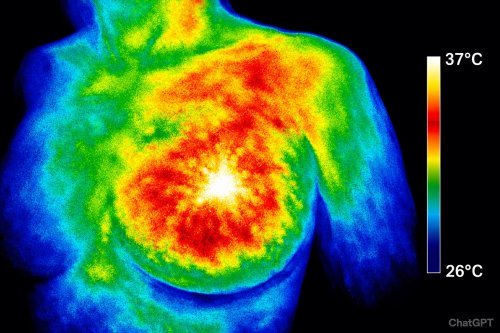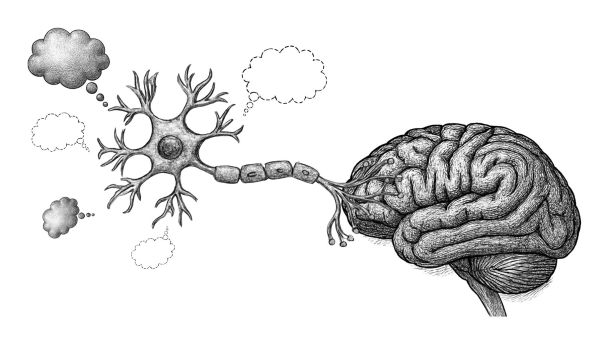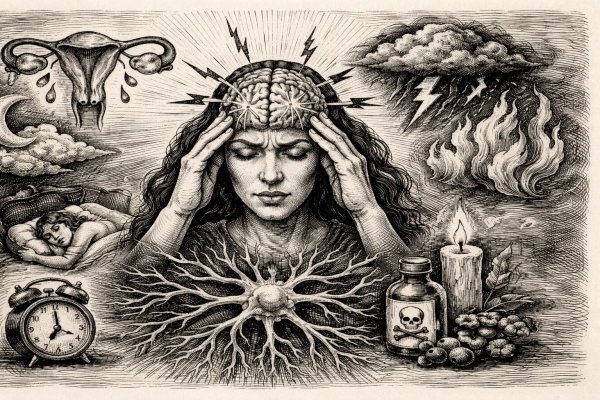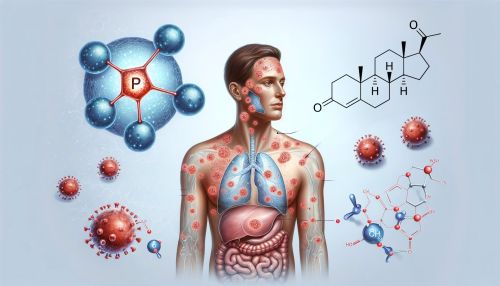Stress Control
Understanding the nature of stress is the key to stress control.
The effectiveness of any therapy, including progesterone therapy, will be assisted or compromised by good or bad nutrition. Of all the environmental poisons bad food is the easiest to avoid.
The human organism responds to poisons in the the same way as it does to any stress - it shows symptoms of disease.
The first rule of good nutrition therefore is to avoid bad food, the second is to consume good food. Western society in particular is largely guilty of ignoring this trite observation.
The following is a broad guide to good nutrition presented to assist those seeking to recover from disease, avoid disease, pursue good health and improve stress control.
But first, read this clear definition of stress by Nobel Laureate Dr Hans Selye.
General Nutrition
There are some 50 nutrients essential for optimum health and improved stress control, these are:
- 2 essential fatty acids
- 10 essential amino acids
- Approximately 20 minerals
- 15 vitamins
In addition the body needs:
- carbohydrates
- fibre
- light
- oxygen
- water
If any one of these is missing death will follow and if any are in short supply the body will be stressed and start to degenerate.
To improve stress control it is essential to boost the immune system and to control blood sugar levels.
Points to remember about nutrition and stress control...
- Only use organic meat, dairy and vegetables
- Avoid intake of factory farmed, animal protein, particularly chicken, as the animals are given antibiotics and estrogenic growth hormones to fatten them
- Avoid all fried foods, burnt or browned fat, saturated and hydrogenated fat
- Use butter, never margarine
- If you fry any food do not sear it, use a low heat to cook
- Use the following oils or fats to cook with: butter; coconut oil; macadamia oil; olive oil. All oils should be organic and cold pressed. Do not use sunflower, safflower, sesame, flaxseed or hemp for frying as they are high in essential fatty acids
- The heating or refining of any vegetable oil or fat causes oxidative damage to occur. The beneficial 'cis' fatty acids that are found in vegetable oils are turned into 'trans' fatty acids and the resultant free radicals are highly carcinogenic
- Frying and deep frying are completely prohibited if optimum health and improved stress control are required
- Minimise all stimulants, tea, coffee, alcohol, and carbonated drinks
- Never use sugar or refined grains or any products made from them
- Avoid all preserved foods
- Follow the Glycaemic Index (below) for optimum health and good stress control
The Glycaemic Index and stress control
This is a measure of how slowly or quickly a food raises your blood sugar level. The faster the release the more dangerous to the body, glucose being rated 100. Choose foods that fall below the 50 mark.
Sugars
- Glucose 100
- Maltose 90
- Honey 87
- Sucrose (sugar) 59
- Fructose 20
Fruit
- Watermelon 72
- Pineapple 66
- Melon 65
- Raisins 64
- Banana 62
- Kiwi 52
- Grapes 46
- Orange 40
- Apple 39
- Plum 39
- Pear 38
- Grapefruit 25
- Cherries 25
Grain & Grain Products
- French Baguette 95
- White Rice 72
- Bagel 72
- White Bread 70
- Wholemeal Bread 69
- Ryvita 69
- Crumpet 69
- Brown Rice 66
- Pastry 59
- Basmati Rice 58
- White Spaghetti 50
- Instant Noodles 46
- Whole grain Wheat Bread 46
- Wholemeal Spaghetti 42
- Whole grain Rye Bread 41
- Barley 26
Cereals
- Corn flakes 80
- Puffed Rice 73
- Weetbix 67
- Muesli 66
- Kelloggs All Bran 52
- Porridge Oats 49
Pulses
- Baked Beans 48
- Butter Beans 36
- Chick Peas 36
- Blackeye Beans 33
- Haricot Beans 31
- Kidney Beans 29
- Lentils 29
- Soya Beans 15
Dairy Products/ Substitutes
- Ice Cream 50
- Yoghurt 36
- Whole Milk 34
- Skimmed Milk 32
Snacks & Drinks
- Lucozade 95
- Jelly Beans 80
- French Fries 75
- Corn Chips 72
- Fanta 68
- Mars Bar 68
- Squash (diluted) 66
- Muesli Bar 61
- Potato Crisps 54
- Orange Juice - fresh 46
- Apple Juice - fresh 40
- Peanuts 14
Vegetables
- Parsnips 97
- Potato (baked) 85
- Potato (new) 72
- Beetroot (cooked) 64
- Sweetcorn 59
- Sweet Potato 54
- Peas 51
- Carrots 49
All green leafy vegetables and brocolli, cauliflower etc are below 50 on the Glycaemic Index.
Points to remember about blood sugar and stress control...
For people who are hypoglycemic it is essential to combine protein rich foods with slow release carbohydrates and high fibre foods. This helps to control blood sugar levels. It is also essential to eat every three to four hours to prevent a sudden drop in the blood sugar.
Low blood sugar is associated with tiredness, irritability, hot flushes, excess weight and cravings for sweet foods, alcohol or stimulants such as coffee or tea. Eating slowly metabolised carbohydrates improves health and lowers both excess weight and unwanted blood fats by controlling insulin release. The more insulin the body produces, the more sugar is converted into fat. Over time the pancreas produces less and less insulin in response to continuous high blood sugar. This ultimately leads to diabetes. High blood sugar also damages the arteries, leading to cardiovascular disease, it can also affect the eyes, kidneys and nerves.
Get details on Insulin Resistance here (a new page will open)
Research has found that estrogen disturbs thyroid activity, which tends to slow metabolism, it is involved in the deposition of fat in humans and it also disturbs blood sugar balance causing hypoglycemia. Progesterone can redress this imbalance. Hypoglycemia is particularly noticeable in women just before menstruation when the progesterone level drops in relation to the estrogen level, causing many of them to experience a sudden increase in appetite.
Unfortunately there is not a corresponding drop in appetite after the period has started. What this means is that there will be a slow increase of weight over the following months and years. Women, who have far higher levels of estrogen than men, have an 80% chance of being hypoglycemic.
This is one of the reasons why women have such difficulty in losing weight. It also explains 'puppy fat' at puberty and 'middle aged spread' at menopause, both times in a woman's life when she experiences estrogen dominance.
It can take two years after her first menstruation before an adolescent ovulates and starts making quantities of progesterone to counteract the estrogen. During the 5 to 10 years prior to menopause a womans' progesterone levels are declining but she is still making normal amount of estrogen. It is therefore essential during these two periods in a womans' life that she helps herself by taking all the nutrients listed above and by following the Glycaemic Diet to control blood sugar and by balancing her progesterone and estrogen levels.
Here's a cardinal rule of improved stress control... "do not over eat".
Stress control also benefits from drinking filtered water only. To calculate your approximate requirements, divide your weight in kilograms by 30 (or weight in pounds by 40) to obtain your daily water needs in litres (or pints).
Exercise is a vital part of any stress control program. A recommended minimum requirement is 20 minutes per day. The program should include stretching, aerobic and resistance work. The last is especially important for osteoporosis.
Here's a final message on stress control from an unknown author. Its perhaps as valuable as any information on this page in helping to control stress...
Stress Management is no joke...
"A lecturer, when explaining stress control to an audience, raised a glass of water and asked, "how heavy is this glass of water?" Answers ranged from 20g to 500g.
The lecturer replied...
"The absolute weight doesn't matter. It depends on how long you try to hold it. If I hold it for a minute, that's not a problem. If I hold it for an hour, I'll have an ache in my right arm. If I hold it for a day, you'll have to call an ambulance. "In each case, it's the same weight, but the longer I hold it, the heavier it becomes."
He continued...
"And that's the way it is with stress control. If we carry our burdens all the time, sooner or later, as the burden becomes increasingly heavy, we won't be able to carry on." "As with the glass of water, you have to put it down for a while and rest before holding it again. When we're refreshed, we can carry on with the burden. So, before you return home tonight, put the burden of work down. Don't carry it home. You can pick it up tomorrow. Whatever burdens you're carrying now, let them down for a moment if you can. Relax, pick them up later after you've rested. Life is short. Enjoy it!"
And then he shared some ways of dealing with the burdens of life...
- Accept that some days you're the pigeon, and some days you're the statue.
- Always keep your words soft and sweet, just in case you have to eat them.
- Always read stuff that will make you look good if you die in the middle of it.
- Drive carefully. It's not only cars that can be recalled by their maker.
- If you can't be kind, at least have the decency to be vague.
- If you lend someone $20 and never see that person again, it was probably worth it.
- It may be that your sole purpose in life is simply to serve as a warning to others.
- Never buy a car you can't push.
- Never put both feet in your mouth at the same time, because then you won't have a leg to stand on.
- Nobody cares if you can't dance well. Just get up and dance.
- Since it's the early worm that gets eaten by the bird, sleep late.
- The second mouse gets the cheese.
- When everything's coming your way, you're in the wrong lane.
- Birthdays are good for you. The more you have, the longer you live.
- You may be only one person in the world, but you may also be the world to one person.
- Some mistakes are too much fun to only make once.
- We could learn a lot from crayons. Some are sharp, some are pretty and some are dull. Some have weird names, and all are different colors, but they all have to live in the same box.
- A truly happy person is one who can enjoy the scenery on a detour.
Please see this web page to really deepen your understanding of how to control stress through correct...
If you would like to find out more about progesterone in general other than its role in stress control please click here.
Do you have a story about stress control?
We'd love to hear it. Sharing it will help us all get a better understanding of just how to control stress effectively.
Here's What Others Have Said
Click on the links below to see contributions and comments from other visitors to this page...
I am not in control
I just started taking estrogen and progesterone, for very bad hot flashes I am having at night. Its so bad that I no longer get a balanced sleep...how …
Stress and Anxiety
Right now I am undergoing extreme anxiety and stress due to familial issues and my own inability to cope. I have heavy menses every month and was just …

 Memory is the brain’s ability to store and recall information. When this system fails, we experience memory loss, which ranges from mild forgetfulness to severe cognitive impairment such as dementia o…
Memory is the brain’s ability to store and recall information. When this system fails, we experience memory loss, which ranges from mild forgetfulness to severe cognitive impairment such as dementia o… Migraines aren’t just intense headaches — they’re a systemic neurological crisis that disrupts your senses, drains your energy, and derails your life. What most people don’t realize is that women are…
Migraines aren’t just intense headaches — they’re a systemic neurological crisis that disrupts your senses, drains your energy, and derails your life. What most people don’t realize is that women are… Psoriasis is commonly seen as a skin problem — red, scaly patches that itch and flare without warning — but research shows the real driver may be hormonal imbalance deep inside the body, especially lo…
Psoriasis is commonly seen as a skin problem — red, scaly patches that itch and flare without warning — but research shows the real driver may be hormonal imbalance deep inside the body, especially lo…